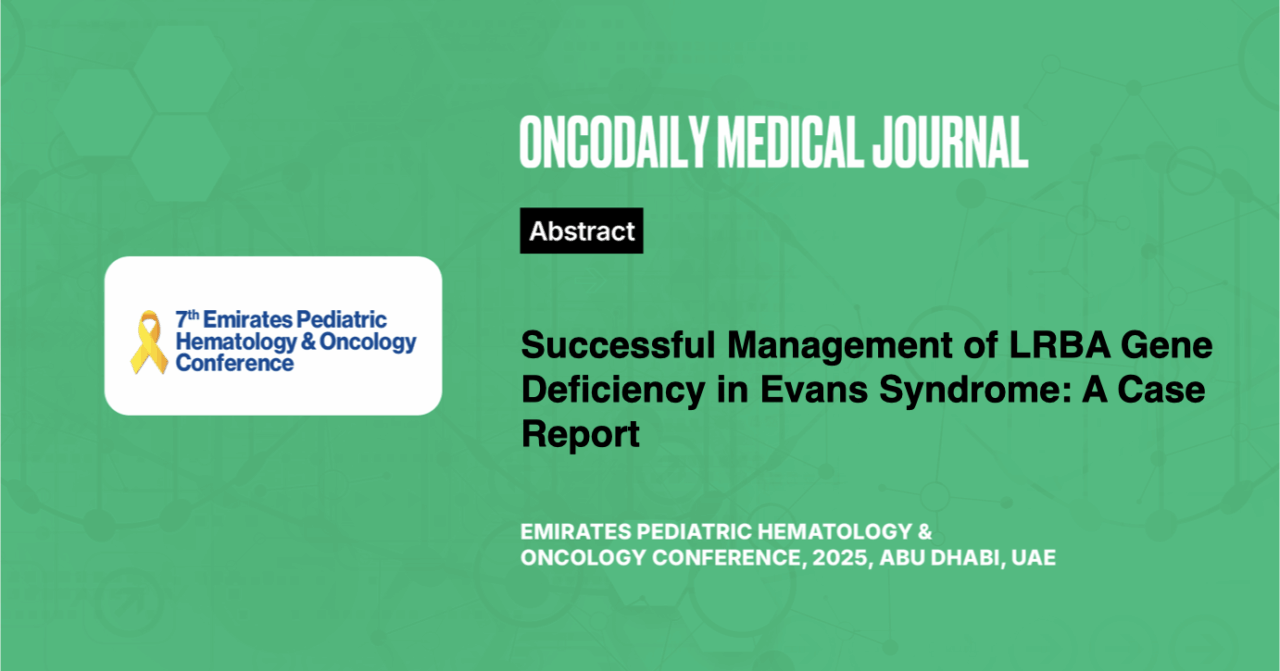Successful Management of LRBA Gene Deficiency in Evans Syndrome: A Case Report
Abstract
Introduction: Evans syndrome can manifest as either a primary or a secondary severe autoimmune disorder. Patients with this syndrome typically experience a simultaneous or sequential occurrence of autoimmune thrombocytopenia and autoimmune hemolytic anemia. The diagnostic process is challenging due to the dual presence of hemolytic anemia and thrombocytopenia, requiring the exclusion of other potential causes such as thrombotic microangiopathies, anemia resulting from thrombocytopenic purpura, vitamin deficiencies, myelodysplastic syndromes, and paroxysmal nocturnal hemoglobinuria.
Evans syndrome is considered a sporadic condition, and no specific genes have been identified as a cause. However, there appears to be a link between the syndrome and harmful variants in immune-related genes, with LRBA deficiency being one of the identified genetic factors. This study aims to monitor and address anemia, thrombocytopenia, and immunodeficiency while minimizing complications. To follow up the response with immunotherapy (via abatacept), IVIG.
Methodology: This is a case report of a 15-year-old girl who has a history of autoimmune anemia and thrombocytopenia, experiencing repeated treatment failures and complicated fractures linked to long-term steroid use. Whole Exome Sequencing (WES) identified a mutation coding for deficiency in the LBRA gene. Her clinical picture due to Evans Syndrome was managed with medication, and the response was monitored by reviewing her laboratory results in the medical records.
Results: The patient was initiated on monthly IVIG treatment to manage her immunodeficiency, along with Abatacept to address her cytopenia. She improved her clinical condition, experienced fewer hospital admissions, and stabilized her laboratory results. The patient maintained good health, successfully gained weight, and grew steadily while avoiding recurrent infections and hospitalizations.
Conclusions: Patients with Evans syndrome require regular monitoring of their blood and platelet counts. Their immune system is compromised, so it is essential to ensure that their health status, growth, and vaccinations are current. The final treatment option for patients with Evans Syndrome is HPSC transplantation. Since the patient has siblings who are currently out of the country, it is difficult to assess their genetic background and HLA typing.





